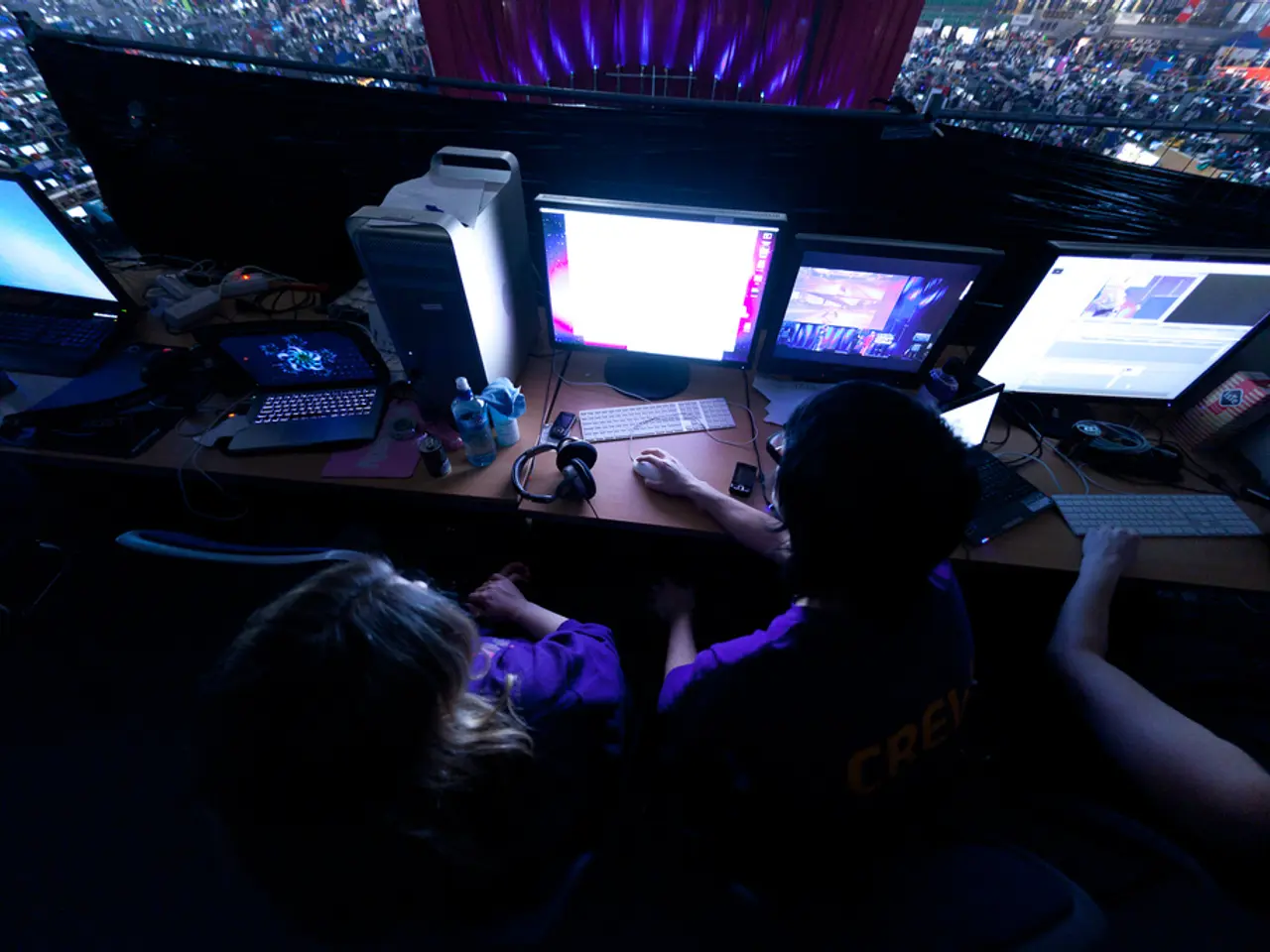AI Scripting Overpowers Human Screenwriters: A Disruption in the Entertainment Industry?
In the ever-evolving world of film, artificial intelligence (AI) is making a significant impact, particularly in the realm of screenwriting. This transformation is offering both opportunities and challenges for the industry.
Screenwriters are finding AI to be a valuable tool for idea generation and script refinement. AI can generate story ideas, aid in brainstorming, and even draft portions of scripts, helping writers overcome creative blocks and speed up the process [1][2]. Furthermore, AI can analyze scripts, suggest rewrites, and provide feedback on structure, as well as assist with dialogue drafting. However, it is crucial for human writers to refine AI output to ensure emotional resonance and authenticity [1][2].
The primary role of screenwriters is shifting towards curating, editing, and strategizing with AI-generated content. This involves refining AI drafts to inject human nuance and emotional depth, making writers more editors and strategists of AI output [2].
The future of storytelling is becoming more personalized and immersive, thanks to AI. AI powers personalized storytelling, allowing for more tailored narratives and immersive experiences [3]. Additionally, AI-driven tools enable real-time video production, leading to faster creation and more dynamic storytelling methods [3].
However, the integration of AI in storytelling raises questions about authorship and creativity. While AI can augment human creativity, it challenges traditional notions of storytelling and narrative control [3][4]. The era of abundance brought about by AI reduces traditional barriers in filmmaking, such as budget and location constraints, opening up new opportunities for creators [5].
Legal considerations are also becoming increasingly important. The use of AI in storytelling raises concerns about copyright and defamation issues [4]. As AI continues to permeate the production pipeline, it is essential for the industry to address these issues to ensure fair practices and protect the rights of creators.
In conclusion, AI is reshaping Hollywood by providing screenwriters with powerful tools for idea generation and script refinement. However, it also demands that writers adapt to new roles, focusing on editing and enhancing AI-generated content to maintain the human touch in storytelling. The future of storytelling is poised to become more personalized, immersive, and abundant, but it also brings forth challenges related to authorship and legal considerations.
- The evolution of screenwriting is seeing an influx of artificial intelligence (AI) from California-based universities like USC, shaping the landscape of the Hollywood film industry.
- Movies are no longer just a Los Angeles or Hollywood phenomenon, as technology, particularly AI, is democratizing filmmaking, making it accessible to creators worldwide.
- In South California's entertainment industry, AI is streamlining business operations and education, with applications in script development and feedback processes.
- The advancements in AI are not confined to the realm of screenwriting or movies alone; they are permeating the entire entertainment industry, including science and technology.
- Beyond the world of film, AI is impacting various sectors in California, touching aspects of education, business, and even influencing policy-making in Los Angeles.
- AI is not merely a tool for the mainstream; it's also revolutionizing niche areas like rams, the ancient system of classical Indian storytelling, by offering unique perspectives and inciting modern interpretations.
- As the use of AI in storytelling becomes more prevalent, we must ensure that existing laws address the challenges of copyright, defamation, and authorship, safeguarding the rights and the human touch that lies at the heart of entertainment and education.




